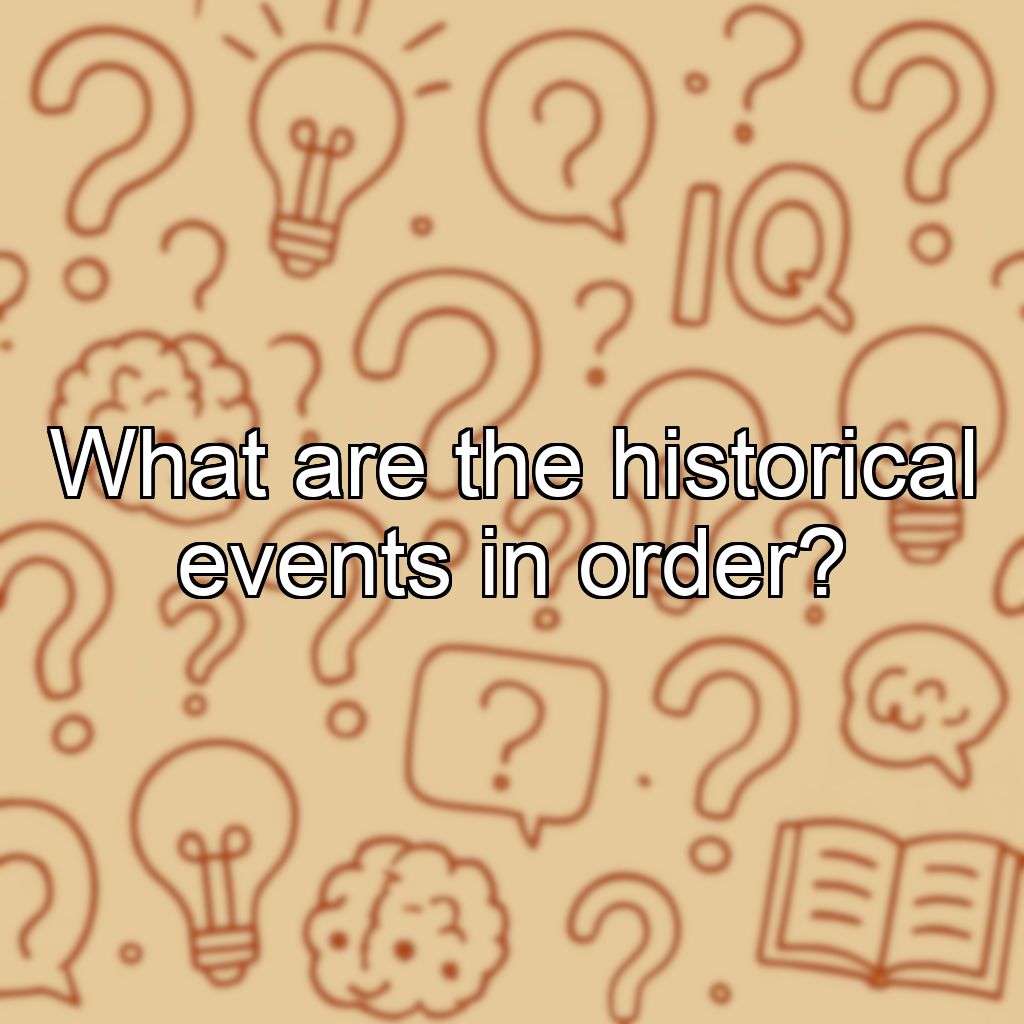What are the historical events in order?

Historical Events in Order
Providing a comprehensive list of all historical events in chronological order is extensive, but here is a brief overview of some key milestones:
- Prehistoric Era: Development of early human societies, use of stone tools, and the beginning of agriculture.
- Ancient Civilizations: Rise of civilizations such as Mesopotamia, Ancient Egypt, Indus Valley, and Ancient China around 3000 BCE.
- Classical Antiquity: Greek and Roman civilizations flourish from around 800 BCE to 500 CE.
- Middle Ages: Fall of the Western Roman Empire (~476 CE), followed by the medieval period in Europe, approximately 500–1500 CE.
- Early Modern Period: Renaissance (~14th–17th centuries), Age of Exploration, and the Reformation.
- Industrial Revolution: Began in the late 18th century, transforming economies and societies.
- 20th Century: Major events include World War I (1914–1918), the Great Depression, World War II (1939–1945), the Cold War, and technological advances.
- 21st Century: Digital revolution, globalization, and significant political, social, and environmental changes.
This overview highlights some of the most influential events. For a detailed timeline, specific periods or regions can be explored further.